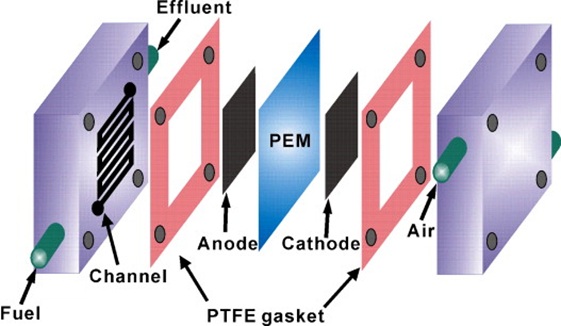Efficient electron transfer (ET) between microbes and electrodes is a key factor for electricity generation in microbial fuel cell (MFC). The utilization of reversible redox electron-mediator can enhance such extracellular ET but could result in environmental contamination and low cost-effectiveness. These limitations may be overcome by immobilizing electron-mediator molecules on electrode surface. In this paper, we present a stepwise amidation procedure to covalently immobilize neutral red (NR), which has been proved to be an appropriate mediator to harvest microbial metabolic electrons due to its excellent electrochemical reversibility and compatible redox potential to the major metabolic electron carriers (e.g., of NADH/NAD+), on carbon electrodes. In this procedure, immobilization of NR is realized by acylchlorination of the carboxylated carbon surface with thionyl chloride followed by amidation reaction with NR. It is shown that such a stepwise amidation procedure can significantly increase the amounts of NR molecules immobilized on carbon surface without altering their redox properties. In addition, the use of NR-immobilized carbon electrodes as MFC anode can significantly increase the power output and the utilization of carbon sources (organic fuel).
https://doi.org/10.1016/j.jpowsour.2010.06.056
